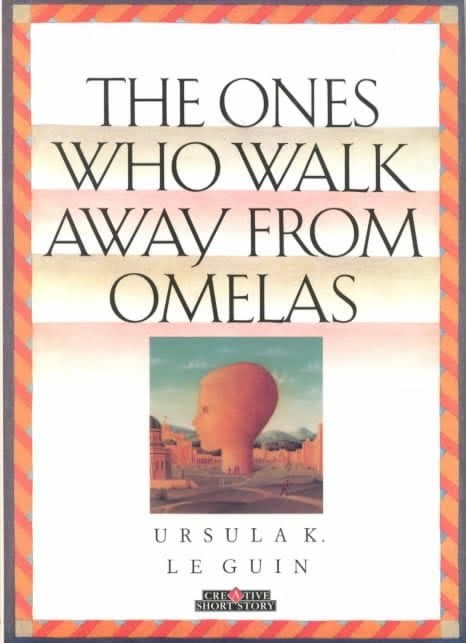 In honor of the great Ursula K. Le Guin, who sadly passed last week, our Throwback Thursday will be dedicated one of her “lesser known” works, “The Ones Who Walk with Omelas”. Of course, we all know that she is the genius behind books like ‘The Left Hand of Darkness’ and the ‘Earthsea’ series, but I feel that we in the scifi/fantasy community don’t look at her other works, such as short stories, philosophical treatises, and poetry.
In honor of the great Ursula K. Le Guin, who sadly passed last week, our Throwback Thursday will be dedicated one of her “lesser known” works, “The Ones Who Walk with Omelas”. Of course, we all know that she is the genius behind books like ‘The Left Hand of Darkness’ and the ‘Earthsea’ series, but I feel that we in the scifi/fantasy community don’t look at her other works, such as short stories, philosophical treatises, and poetry.
As such, I think “The Ones Who Walk Away from Omelas” is a great start. It’s short and therefore easy to digest (though one paragraph seems to go on for two pages), but it also stands as a beautiful metaphor for life in a so-called “First World Nation”.
There is no plot in “The Ones Who Walk Away from Omelas”. Instead, it’s a description of a sublimely happy place called “Omelas” from the point of view of an outsider. For nearly half the story, the narrator explains how the citizens are happy and healthy, and how their lives are beautiful and untouched by sadness, stress, or anxiety. It keeps saying that though one would suspect there is a dark side, that there simply is none. They are not stupid, or simple. They are just happy.
That is until you discover to maintain this happiness, every home houses a child that must stay in a dark room only seeing light to be occasionally beaten. The citizens of Omelas find out about this when they are between the ages of 8 and 12, and then usually turn a blind eye to it. After all, isn’t the happiness of a 1,000 people more important than the happiness of one?
However, the story ends saying that some look at this poor child, miserable in a dark room, frightened and suffering, and they leave Omelas and the happiness behind. Those are the ones that walk away.
The story essentially asks the reader a question: If you knew that your happiness was predicated on the suffering of another, would you ignore that suffering?
That is a question that is asked in America every hour of every day, and it seems that most ignore the fact that their successes come directly from the oppressions (largely historical) of others.
This story is just a glimpse into the mind of the thoughtful, and truth-seeking Ursula K. Le Guin, but I think it bears spending time with. In such a short amount of time, she can reveal truths that make one uncomfortable and force one to recognize what lies beneath the constructs those in power build for themselves. And if you need any more convincing, it also won a Hugo for Best Short Story in 1974.
